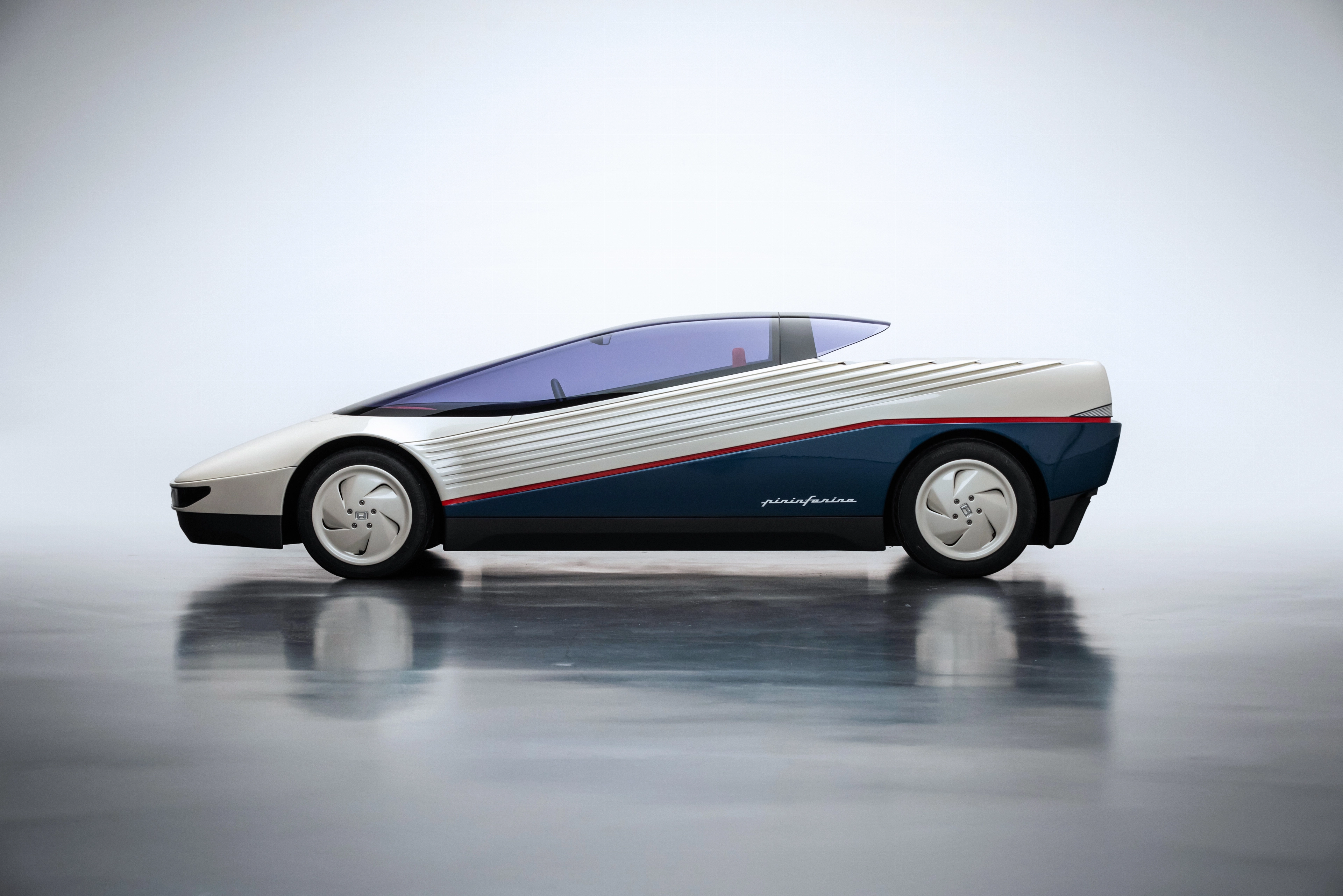
1984 HONDA HP-X Concept Car Makes North America Debut at 2024 Pebble Beach Concours d'Elgance
1984 HONDA HP-X Concept
• Following an extensive restoration, the HP-X Concept will be entered in the “Wedge-Shaped Concept Cars and Prototypes Class” at Concours d’Elegance
• Honda HP-X Concept originally debuted at the 1984 Turin Motor Show, signaling the company’s intent to bring a mid-engine supercar to market
• Designed by legendary design firm Pininfarina, HP-X Concept features a dramatic wedge profile and fighter-jet inspired cockpit
• HP-X Concept appearance at Pebble Beach, marks first Japanese vehicle entry at Concours d’Elegance in over 50 years
TORRANCE, Calif., July 31, 2024 – Honda is turning back the clock 40 years, with the North American debut of the company’s very first concept car, the Honda HP-X, during next month’s Monterey Car Week – one of the world’s top gatherings of automotive and motorsports enthusiasts. Styled and handcrafted by renowned Italian design house Pininfarina and making its first major public appearance since 1984, the radical wedge-shaped HP-X (Honda Pininfarina eXperimental)
TORRANCE, Calif., July 31, 2024 – Honda is turning back the clock 40 years, with the North American debut of the company’s very first concept car, the Honda HP-X, during next month’s Monterey Car Week – one of the world’s top gatherings of automotive and motorsports enthusiasts. Styled and handcrafted by renowned Italian design house Pininfarina and making its first major public appearance since 1984, the radical wedge-shaped HP-X (Honda Pininfarina eXperimental)
Concept preceded the development of the first-generation NSX supercar. Following an extensive restoration carried out at the Pininfarina workshop in Italy, the legendary Honda HP-X Concept will be displayed in the Wedge-Shaped Concept Cars and Prototypes Class at the 73rd Annual Pebble Beach Concours d’Elegance on Sunday, Aug. 18, 2024.
“The Honda HP-X Concept was the star of the 1984 Turin Auto Show, showcasing elements of engineering excellence and cutting-edge design, with extreme wedge-shape styling that continues to inspire future generations of car designers and engineers,” said Dave Marek, Acura design executive and honorary Concours judge. “The forward-thinking HP-X had an undeniable impact on the industry, highlighting our commitment to pushing the boundaries of what is possible in automotive design.”
The HP-X employed advanced aerodynamics including “ground effects” and innovative cooling solutions for its mid-mounted 2.0-liter DOHC 24-valve V6 engine, which was based on a Honda F2 racing engine. There are no doors, instead the futuristic concept features a jet-fighter style removable single-piece Perspex canopy. The rear of the canopy extends into a fairing with two main functions – improving the car’s streamline appearance and serving as a driver-controlled air brake. Additionally, the HP-X explored the cutting-edge use of alternative materials including honeycomb panels, carbon fiber and Kevlar to reduce weight and improve performance. The HP-X’s interior explored new levels of comfort, ergonomics and function thanks to extensive styling research. A Honda developed “Electronic Drive Support System” previewed advanced features including real-time telemetry, GPS and even road condition warnings via “special sonar” – commonplace technologies today. "The Honda HP-X is an ideal example of Pininfarina’s unique ability to present innovative ideas through concept cars that set future trends,” said Felix Kilbertus, Pininfarina’s Chief Creative Officer. “At Pininfarina, we strive to infuse our values of design excellence into every project, ensuring that the essence of the brand we collaborate with remains intact, while confidently looking ahead. The HP-X did not go into production as such, but its influence on subsequent Honda models and the broader automotive landscape is undeniable. It stands as a testament to both Honda’s and Pininfarina’s innovative spirit, inspiring future developments in the automotive industry.”
The HP-X employed advanced aerodynamic including “ground effects” and innovative cooling solutions for its mid-mounted 2.0-liter DOHC 24-valve V6 engine, which was based on a Honda F2 racing engine. There are no doors, instead the futuristic concept features a jet-fighter style removable single-piece Perspex canopy. The rear of the canopy extends into a fairing with two main functions – improving the car’s streamline appearance and serving as a driver-controlled air brake. Additionally, the HP-X explored the cutting-edge use of alternative materials including honeycomb panels, carbon fiber and Kevlar to reduce weight and improve performance. The HP-X’s interior explored new levels of comfort, ergonomics and function thanks to extensive styling research. A Honda developed “Electronic Drive Support System” previewed advanced features including real-time telemetry, GPS and even road condition warnings via “special sonar” – commonplace technologies today.
“The Honda HP-X is an ideal example of Pininfarina’s unique ability to present innovative ideas through concept cars that set future trends,” said Felix Kilbertus, Pininfarina’s Chief Creative Officer. “At Pininfarina, we strive to infuse our values of design excellence into every project, ensuring that the essence of the brand we collaborate with remains intact, while confidently looking ahead. The HP-X did not go into production as such, but its influence on subsequent Honda models and the broader automotive landscape is undeniable. It stands as a testament to both Honda’s and Pininfarina’s innovative spirit, inspiring future developments in the automotive industry.”
Designed with a focus on advancing technology, the HP-X Concept served as a testbed for ambitious new ideas, technologies and engineering principles that would eventually be seen in later Honda and Acura models, particularly in the mid-engine two-seat NSX which debuted just a few years later. Designed and developed in Japan, the first-generation NSX embodied many of the ideas and innovations first explored in the HP-X, firmly cementing the concept’s place in automotive history.
HP-X Concept Dimensions:
Overall Length: 4,160 mm (163.8 inches)
Overall Width: 1,780 mm (70.1 inches)
Overall Height: 1,110 mm (43.7 inches)